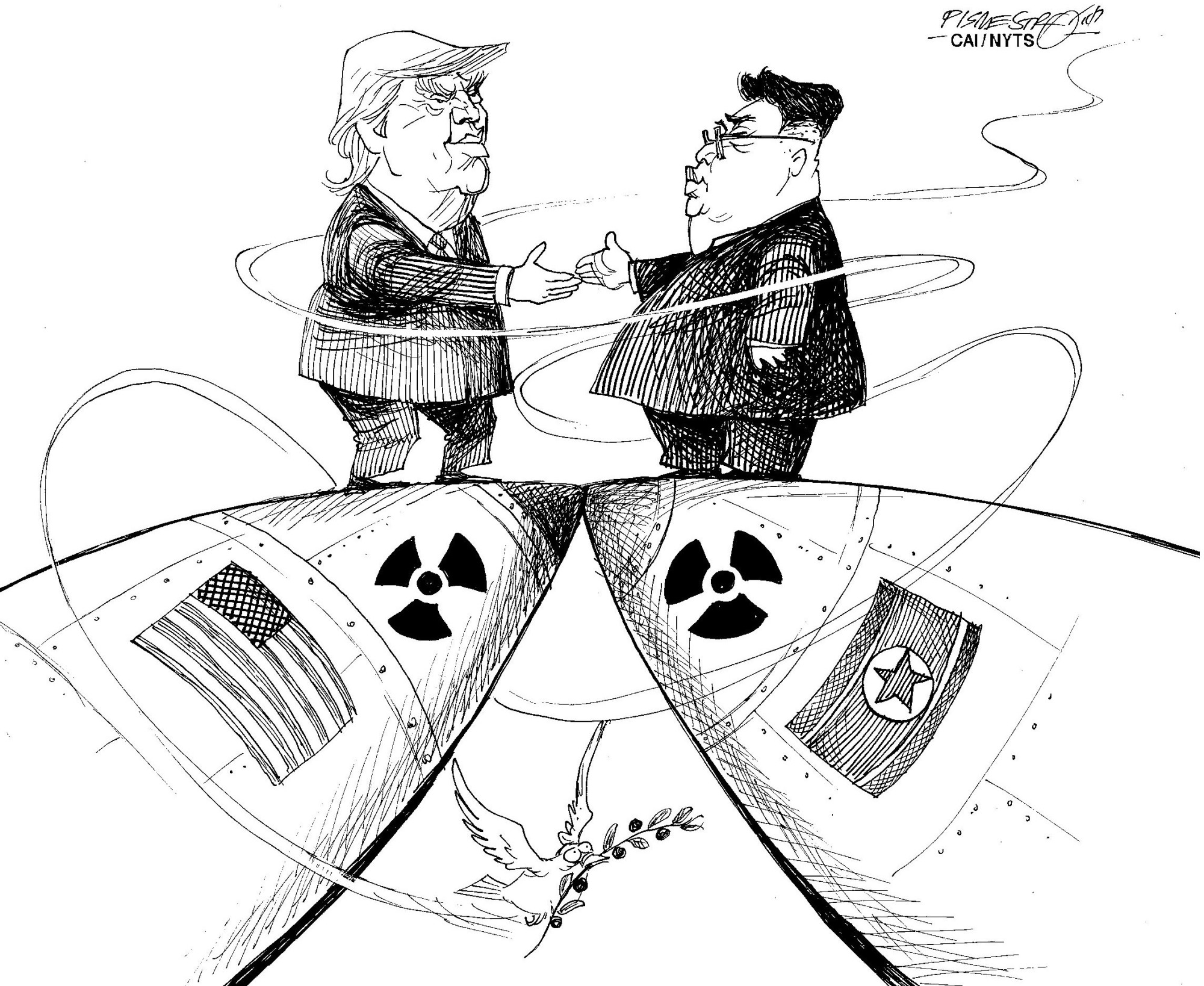On June 26, Secretary of State Mike Pompeo said that the United States will not place a deadline on North Korea's denuclearization. Even though he insisted that the U.S. will regularly assess the seriousness of North Korea's commitment to giving up its nuclear weapons program, the Trump administration's apparent reluctance to hold Pyongyang accountable by setting a concrete time line is a source of worry for Tokyo. Japan was already growing increasingly anxious about the U.S. commitment to addressing its concerns during the negotiations with North Korea.
The question of how close Prime Minister Shinzo Abe really is to President Donald Trump began to emerge after his visit to the U.S. to meet him in mid-April. Despite their talks over two days — both on and off the golf course — Abe failed to convince Trump to reverse his decision to impose a hefty tariff on Japan's steel and aluminum exports to America.
Furthermore, since the announcement of the summit meeting between Trump and North Korean leader Kim Jong Un on March 8, concerns have risen in Japan that, despite Abe's best efforts to keep the nation engaged in regional diplomacy by remaining in close consultation with Washington, Tokyo has been largely sidelined by the fast-moving developments on the Korean Peninsula.


















With your current subscription plan you can comment on stories. However, before writing your first comment, please create a display name in the Profile section of your subscriber account page.